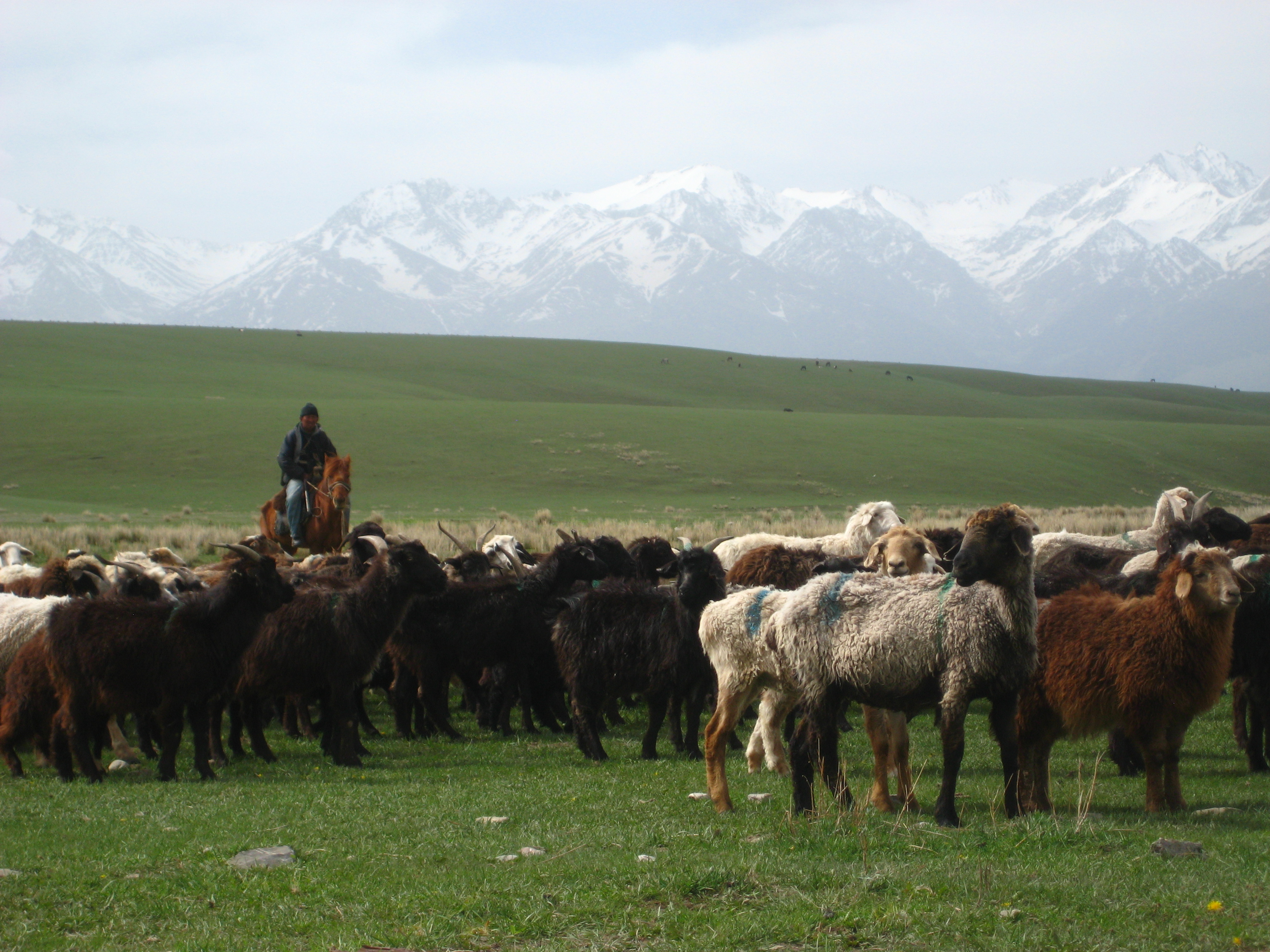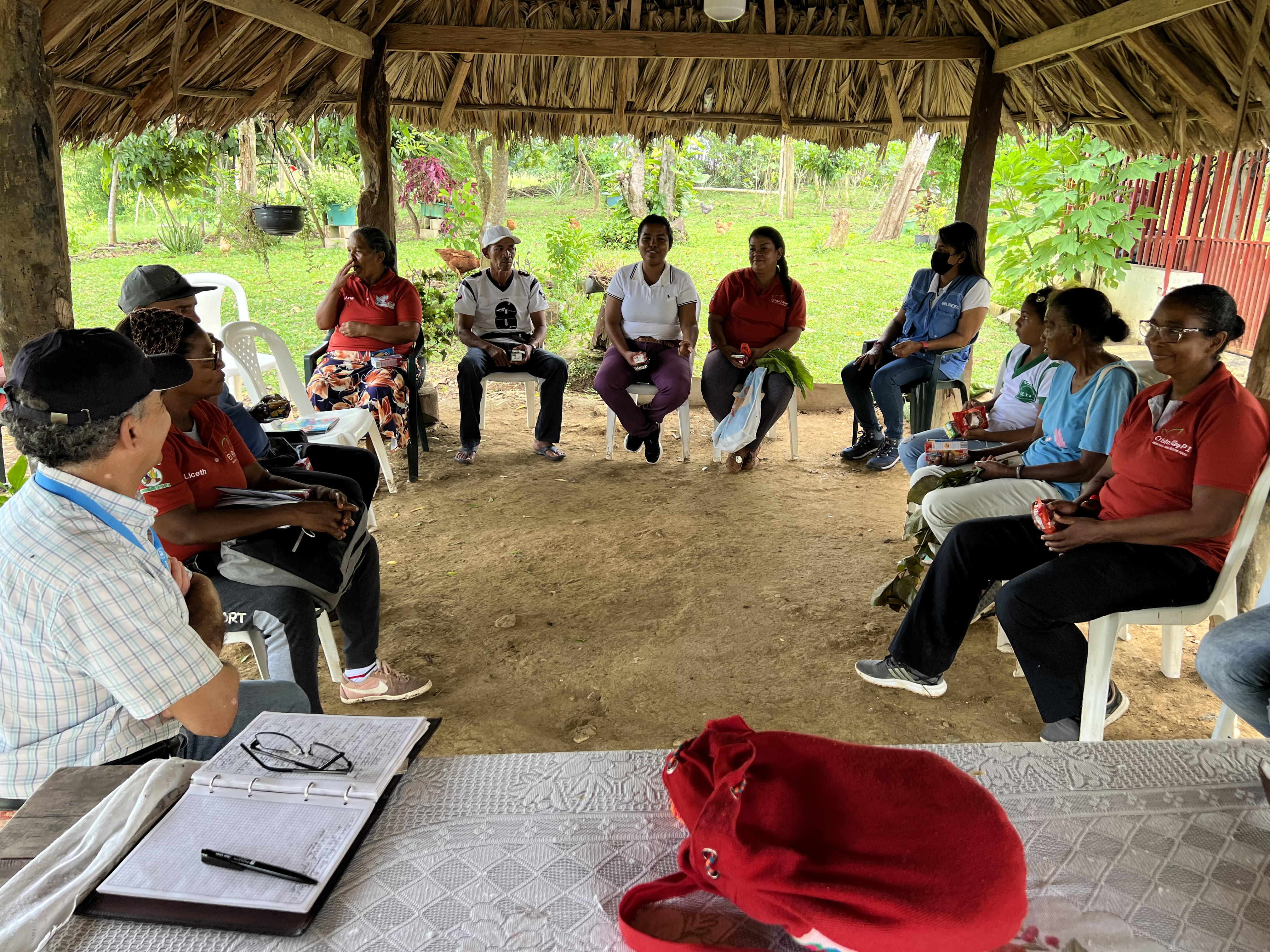Positive changes in economic opportunities, natural resource management and climate change adaptation achieved in G5 Sahel countries - IOE
Rome, 27 February 2023 – Through its portfolio of co-financed operations and programmes, IFAD has contributed to positive changes in economic opportunities, natural resource management and adaptation to climate change in Burkina Faso, Chad, Mali, Mauritania, Niger and Northern Nigeria, between 2010 and 2021. These results have been instrumental in enhancing resilience of beneficiaries and their communities by building their absorptive and adaptive capacities, while transformative capacities were on-going. During a learning workshop, Kouessi Maximin Kodjo, Lead Evaluation Officer of the Independent Office of Evaluation of IFAD (IOE), presented these and other findings of the forthcoming evaluation report titled ‘Sub-Regional Evaluation of countries with fragile situations in IFAD-West and Central Africa (WCA)’.
“This was the first Sub-Regional Evaluation carried out by IOE. The aim was to reinforce lessons learned on the basis of empirical data. In the evaluation, we decided to work on the topic of fragility for the G5 Sahel and Northern Nigeria. IFAD supported interventions explicitly addressed poverty, degradation of natural resources and social inequalities”, explained Dr Kodjo.
Organized by IOE on 27 February 2023, the on-line virtual workshop brought together a wealth of high-level attendants, including Mr Diamoitou Guessibo Boukari Secretary General of the Ministry in charge of Livestock of the Republic of Niger, and Mr Kouldjim Guido, Deputy Executive Secretary of the G5 Sahel. Over 70 participants joined the event, representing the Government of Nigeria and the Governments of the G5 Sahel countries – namely Burkina Faso, Chad, Mali, Mauritania, and Niger –, and regional bodies, such as the G5 Sahel Secretariat and the Permanent Inter-State Committee for Drought Control in the Sahel (CILSS). In addition, the meeting also benefitted from the contributions of NGOs, including “Réseau Billital Maroobé et partenaires”, IFAD senior management and staff, and other partners met during the evaluation.
“Let me highlight the importance of this kind of event, which is core for the utility of the evaluation. Indeed, its purpose is to promote the effective usage of recommendations, by facilitating a discussion between critical stakeholders on the evaluation findings. As such, IOE is always keen to organise learning events to conclude such important evaluations”, underscored Indran A. Naidoo, Director, IOE.
Sub-Regional Evaluations (SREs) were introduced into IOE’s evaluation portfolio in 2021, to support evidence-based learning. SREs evaluate intra-regional issues or common development challenges within a defined geographical zone to identify common strategic and programmatic lessons. The sample countries of the IFAD-WCA SRE were selected, after engagement with IFAD management, due to the similar fragility challenges they are facing, which pose threats for achieving the Sustainable Development Goals (SDGs).
“This evaluation is very enlightening, very insightful, and the issues are very common across a number of regions. Fragility is poverty, it is violence, it’s a vicious cycle because fragility can cause poverty and conflict, and vice versa”, stressed Dina Saleh, Director, Near East, North Africa, Europe and Central Asia (NEN) Division.
The event featured a discussion panel of persons comprising key actors concerned by the evaluation themes, in addition to a questions and answers session and high-level opening and closing statements. The discussions focused on a number of cross-cutting issues. These included, first, how can IFAD support governments in addressing the challenge posed by weak public institutions in fragile contexts, to ensure effectiveness and sustainability of operations. Second, how can IFAD contribute to addressing transboundary issues on a regional basis, given that cross border trade and trahumance are of great importance in the sub-region, and cannot be only linked to one country strategy. Third, what can strategies and operations in WCA learn from other IFAD regions, such as Near East, North Africa, Europe and Central Asia, in terms of the nexus conflict and poverty.
“The G5 Sahel group brings value added in the region. Our actions are localized and our approach is regional. Our strategy for development and security focuses on regional coordination, and all of our projects involve at lease two countries”, highlighted Mr Kouldjim Guido.
The event also afforded opportunities to delve into the strengths uncovered by IOE’s forthcoming SRE report. In particular, participants noted that improved farming practices led to increased yields and reduced yield variability; thus, promotion of improved cropping and animal husbandry techniques and adoption of asset building strategies were determinant in those fragile contexts. Furthermore, capacity building and non-financial support were critical in developing the necessary human and social capital of individuals and groups, necessary in fragile situations. In addition, support to customary credit and saving groups was instrumental for smallholders’ resilience building strategies. Other important aspects included that empowering producers’ and farmers’ organisations to deliver effectively and sustainably was instrumental to building absorptive and adaptive capacities, and that IFAD support created favourable conditions for farmers’ organisations to participate in relevant policy discussions.
“The IFAD approach in Niger, via economic development funding, has led to a number of solutions for agro-silvopastoral products and intra-state transhumance. IFAD has also helped with the coordination of local actors. This coordination has helped obstacles between borders to lesson a little bit”, noted Mr Diamoitou Guessibo Boukari.
Challenges were equally addressed during the meeting. In this regard, the discussions presented the missing nexus approach addressing poverty and conflict in IFAD supported operations in the G5+1 context. Other matters of concern included the mixed results achieved for functionality of water users’ associations for small-scale irrigation schemes, where local management committees had to play important roles, despite intensive efforts by projects in Burkina Faso, Chad, Mali and Niger. In addition, the report found that pastoralism – which is an important issue in the Sahelian context – received an insufficient focus in IFAD supported operations, over the reviewed period.
Looking ahead, it is recommended that IFAD develop a comprehensive resilience framework for the sub-region or region to guide assessments, designs and implementation of operations at field, national and regional levels. It is also recommended to revisit approaches for value chain development support within the sub-region to further improve the inclusiveness, and to build on community-driven approaches that showed to be effective in highly fragile areas. Other recommendations include the need to further promote the resilience of rural communities through support to producers’ and farmers’ organisations and community-based organizations to effectively deliver services and strengthen their capacity to engage in policy dialogue on topics related to them.
For further information, please contact Alexander Voccia [here]
RESOURCES
- To access the SRE learning event web page, including all related resources, please click here.
CONTACTS

